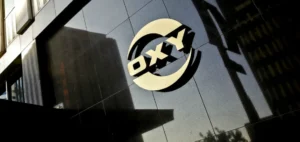Next year, global oil markets are expected to experience a significant imbalance between supply and demand, according to the latest World Bank report. The Washington-based organization indicates that global oil production should exceed demand by an average of 1.2 million barrels per day in 2025. Such a surplus, observed only twice before – in 1998 and 2020 – could drive commodity prices to their lowest level in five years.
China and the energy paradigm shift
One of the main causes of this oil surplus is a major shift underway in China. The report highlights stagnating oil demand in the country due to a rapid transition toward electric vehicles and an increased demand for trucks powered by liquefied natural gas (LNG). Additionally, the slowdown in industrial production in China contributes to a reduction in demand for crude oil, which could reinforce the global oversupply.
Limited effect of geopolitical tensions
The World Bank estimates that this global surplus is so significant that it should limit the impact on oil prices, even in the event of expanded tensions in the Middle East. The geopolitical situation in this region, typically an inflationary factor for energy prices, should thus be counterbalanced by this abundance of global supply, weakening its effects on world markets.
Non-OPEC producers ramp up activities
Another key element amplifying this excess supply is the increase in oil production in several non-member countries of the Organization of the Petroleum Exporting Countries (OPEC). These states, driven by lower operating costs and policies favorable to oil extraction, contribute to the anticipated imbalance in the global market. This increase in supply could lead to a 10% drop in commodity prices by 2026, according to World Bank estimates.
A complex dynamic for food prices
In parallel with this expected drop in energy prices, the World Bank forecasts a 9% decrease in food prices this year, followed by an additional 4% decrease in 2025. However, despite these optimistic projections, food price levels should remain 25% higher than those seen in the five years before the Covid-19 pandemic. Developing countries, where food inflation is twice as high as in advanced economies, will continue to face high food prices.
Global economic outlook
In its report, the World Bank points out that this drop in commodity prices could act as a stabilizer against potential geopolitical shocks. However, this stabilizing effect will only provide limited relief for developing economies facing persistent food inflation. From a global perspective, the reduction in energy and food prices could offer favorable prospects for economic recovery in advanced economies while posing new challenges for low-income countries.





















